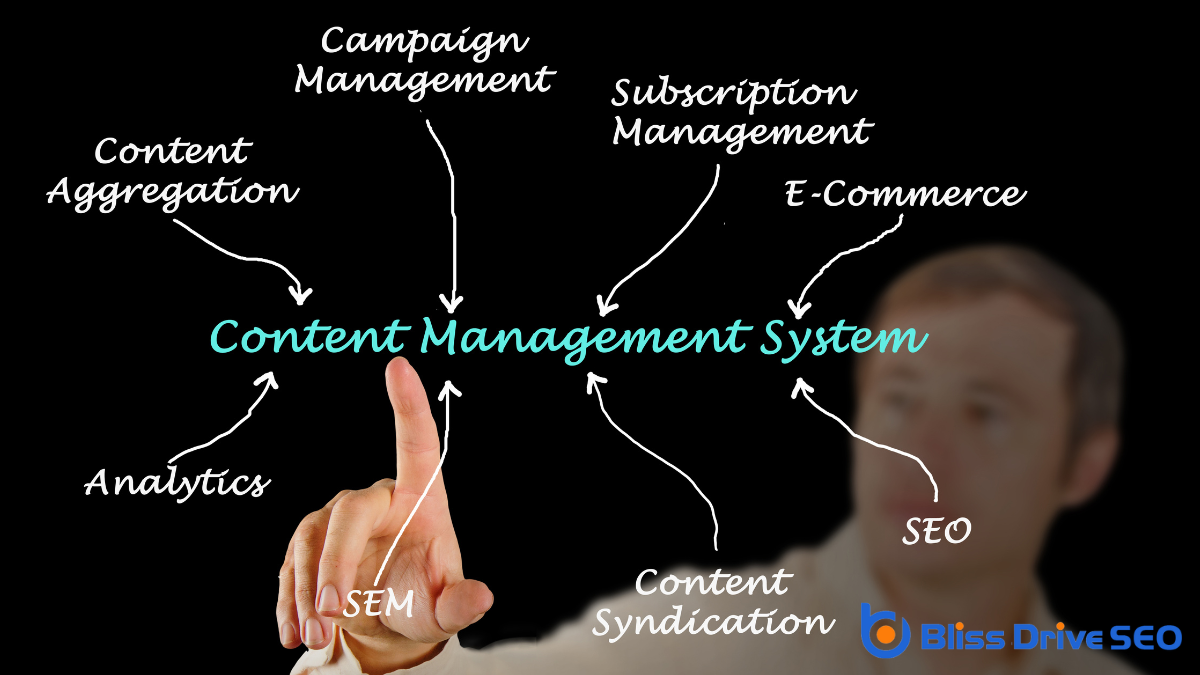Digital Marketing Services
Learn More About Us

You've probably encountered PHP without even realizing it, as it's the backbone of many websites you visit daily. Known for its role in server-side scripting, PHP transforms static pages into dynamic experiences, making it essential for web development. But what exactly makes PHP the preferred choice for platforms like WordPress and Joomla? And how does it handle complex tasks like e-commerce transactions and secure data management? As you explore PHP's capabilities, you'll discover its adaptability in a tech landscape that's constantly evolving. Let's examine how PHP continues to shape the digital world.
In the domain of web development, PHP shines as a flexible and powerful server-side scripting language. You're probably aware that it's used to create dynamic and interactive web pages. What makes PHP particularly appealing is its simplicity and ease of integration with HTML. It smoothly embeds itself within HTML code, letting you seamlessly bring dynamic contentEmail content that changes based on the recipient's preferences or behavior. to static web pages.
When you explore PHP, you'll notice that it handles server-side tasks with remarkable efficiency. It processes form data, manages sessions, and even interacts with databases like MySQL, enabling you to store and retrieve data effortlessly. PHP's versatility means you can build anything from small personal blogs to large, complex web applications.
One of PHP's strengths is its vast community and extensive library of frameworks and tools. Frameworks like Laravel and Symfony streamline development by providing structured, reusable code, allowing you to focus more on building features rather than wrestling with repetitive tasks.
Security is another critical aspect of PHP's excellence. By following best practices and using built-in functions, you can safeguard your web applications against common threats.
Ultimately, PHP empowers you to craft robust, dynamic websites that cater to diverse needs and audiences.

PHP plays a pivotal role in the domain of content management systems (CMS), powering many of the most popular platforms you encounter online. If you've ever used WordPress, Joomla, or Drupal, you're already familiar with PHP's impact.
These platforms rely on PHP to dynamically generate web pages, manage databases, and allow you to easily create and update content without needing deep technical skills. This makes PHP essential for both beginners and advanced users looking to build or manage websites.
When you use a CMS powered by PHP, you get the flexibility to customize your site with themes, plugins, and modules. These extensions let you enhance functionality without starting from scratch, making PHP a user-friendly option for varied needs.
You can focus on content creation while PHP handles the backend operations, ensuring a seamless experience.
PHP's open-source nature means there's a wide array of resources and a supportive community ready to help you. Whether you're building a blog, a news site, or a community forum, PHP provides the backbone for your content management needs.
With PHP, you gain the ability to scale your digital presence as your content and audience grow.
E-commerce thrives on the flexibility and power that PHP brings to online shopping platforms. When you're building an e-commerce site, PHP offers a robust foundation for dynamic and interactive websites. It efficiently handles essential tasks like managing user sessions, processing payments, and maintaining product catalogs.
With PHP, you can create custom solutions tailored to your specific business needs, guaranteeing that your online store is both unique and functional.
PHP's extensive library of frameworks, such as Laravel and Symfony, simplifies the development process by offering reusable components and pre-built modules. These frameworks help you speed up development while maintaining high quality and security standards.
With features like secure authentication systems and database management, PHP frameworks make certain your e-commerce site runs smoothly and securely.
Additionally, PHP integrates seamlessly with various databases, including MySQL, which is vital for handling large volumes of data typical in e-commerce. This guarantees that your site can scale efficiently as your business grows.
Utilizing PHP, you gain access to a vast community of developers and resources, which can be invaluable for troubleshooting and optimizing your online store.
Embrace PHP's capabilities to create a reliable and efficient e-commerce solution.
When you're working with PHP for server-side scripting, you can create dynamic web pages that respond to user interactions.
This means you can handle form data efficiently, update content, and deliver personalized experiences without needing to refresh the entire page.
Creating dynamic web pages lies at the heart of PHP's capabilities, enabling websites to interact with users by generating content on the fly. When you use PHP, you can create web pages that respond to user inputs, display current data, and provide personalized experiences. This is possible because PHP runs on the server, processing requests before sending the results to the user's browser.
Here's how PHP helps you craft dynamic pages:
Form data processing is a critical aspect of server-side scripting with PHP, enabling you to handle user inputs effectively. When users submit forms on your website, PHP processes these inputs seamlessly, allowing you to gather essential data like names, emails, or preferences. This capability is crucial for creating interactive and personalized web experiences.
You can use PHP to validate the form data, ensuring that users enter information in the correct format. For example, you might check if an email address contains "@" or verify if a password meets security criteria. Validating data on the server side with PHP enhances security by preventing malicious inputs, such as SQL injections.
Once the data is validated, PHP allows you to store it in databases like MySQL, enabling efficient data management and retrieval. This is particularly useful for maintaining user accounts, processing orders, or managing content. PHP also facilitates data manipulation, enabling you to update, delete, or retrieve information as needed.
Moreover, PHP can send confirmation emails or notifications based on form submissions, ensuring users receive immediate feedback. By leveraging PHP for form data processing, you're equipping your web applications with robust, efficient ways to interact with users and manage data securely.

When you build dynamic web applications, PHP's server-side scripting language is your go-to tool.
It seamlessly integrates with databases, allowing you to create interactive and responsive sites.
Plus, PHP's user authentication features help you manage secure user access effortlessly.
PHP, a widely-used server-side scripting language, powers dynamic web applications by enabling interactive and responsive user experiences. When you visit a website, PHP runs on the server, processing your requests and delivering just the right content to your browser. This happens behind the scenes, making your online interactions smooth and seamless.
Here's how PHP enhances dynamic web applications:
Understanding PHP as a server-side scripting language reveals its essential role in creating the dynamic, responsive web applications you interact with daily.
Though many languages support database interactions, PHP excels in seamlessly integrating with various database systems, making it indispensable for dynamic web applications. You'll find that PHP offers built-in support for a wide range of databases like MySQL, PostgreSQL, SQLite, and more. This flexibility allows you to choose the best database system for your needs without worrying about compatibility issues.
When you use PHP, you can easily connect to a database, execute queries, and fetch results—all with straightforward syntax. Functions like 'mysqli_connect' or 'PDO' (PHP Data Objects) simplify the process of establishing connections and managing data. These tools make your code cleaner and more efficient, saving you time and effort.
PHP also supports prepared statements, which offerThe specific product or service being promoted by affiliates. a secure way to handle user inputs and reduce the risk of SQL injection attacks. This feature is essential when building dynamic web applications that interact with databases.
Additionally, PHP's error-handling functions help you troubleshoot database interactions effectively, making your applications more robust.
Building on PHP's robust database integration capabilities, let's explore how it excels in user authentication features, a cornerstone of dynamic web applications. PHP simplifies implementing secure login systems, guaranteeing users can safely access their accounts while protecting sensitive information.
It provides built-in functions and libraries that handle tasks like password hashing, session management, and input validation, which are essential for maintaining security and user trust.
Here's why PHP stands out in user authentication:
When it comes to data collection and processing, PHP stands out as a versatile tool for web developers. It seamlessly integrates with databases like MySQL, making it easy to gather user data from forms and store it securely.
Whether you're collecting email addresses for a newsletterA regularly distributed email containing news, updates, and content relevant to subscribers. or processing complex survey results, PHP provides the functionality you need to handle data efficiently.
You can use PHP to validate and sanitize form inputs, ensuring only clean and useful data gets stored in your database. This is essential for maintaining data integrity and security.
PHP's built-in functions allow you to check for common issues like missing fields or invalid email addresses, reducing errors and enhancing user experience.
Moreover, PHP can automate data processing tasks. For instance, you can schedule scripts to run at specific times, automatically generating reports or updating records based on new data.
This automationUsing software to send emails automatically based on predefined triggers and schedules. saves you time and effort, letting you focus on more strategic aspects of your project.
You've seen how PHP plays an essential role in web development, powering dynamic web pages and enabling responsive user interactions. It supports popular CMS platforms like WordPress, making content management a breeze. PHP also shines in e-commerce, handling user sessions and secure transactions effortlessly. With its strong database integration, PHP efficiently manages data storage and retrieval. Whether you're building simple sites or complex applications, PHP's versatility guarantees you're equipped to create robust, interactive online experiences.
